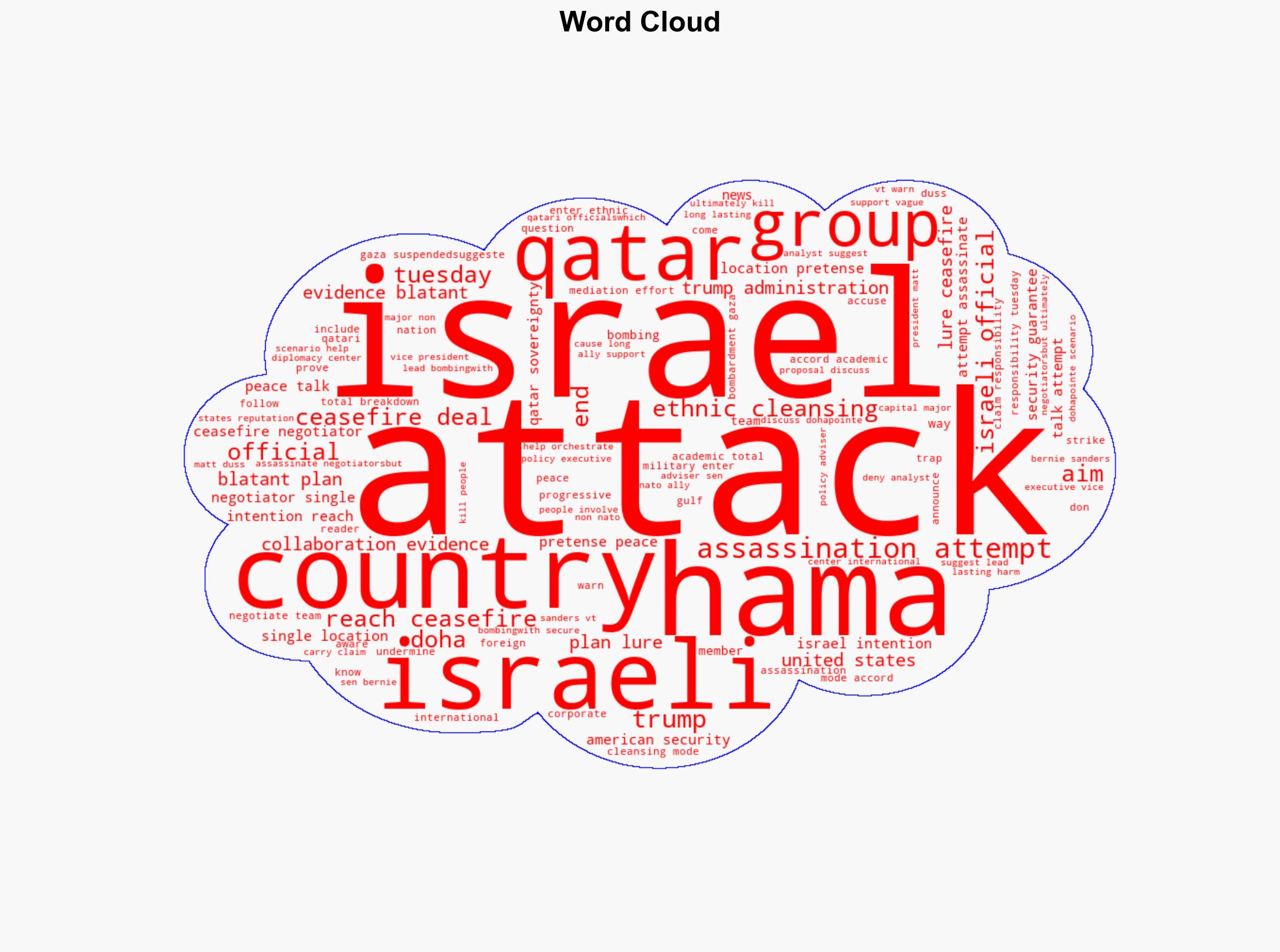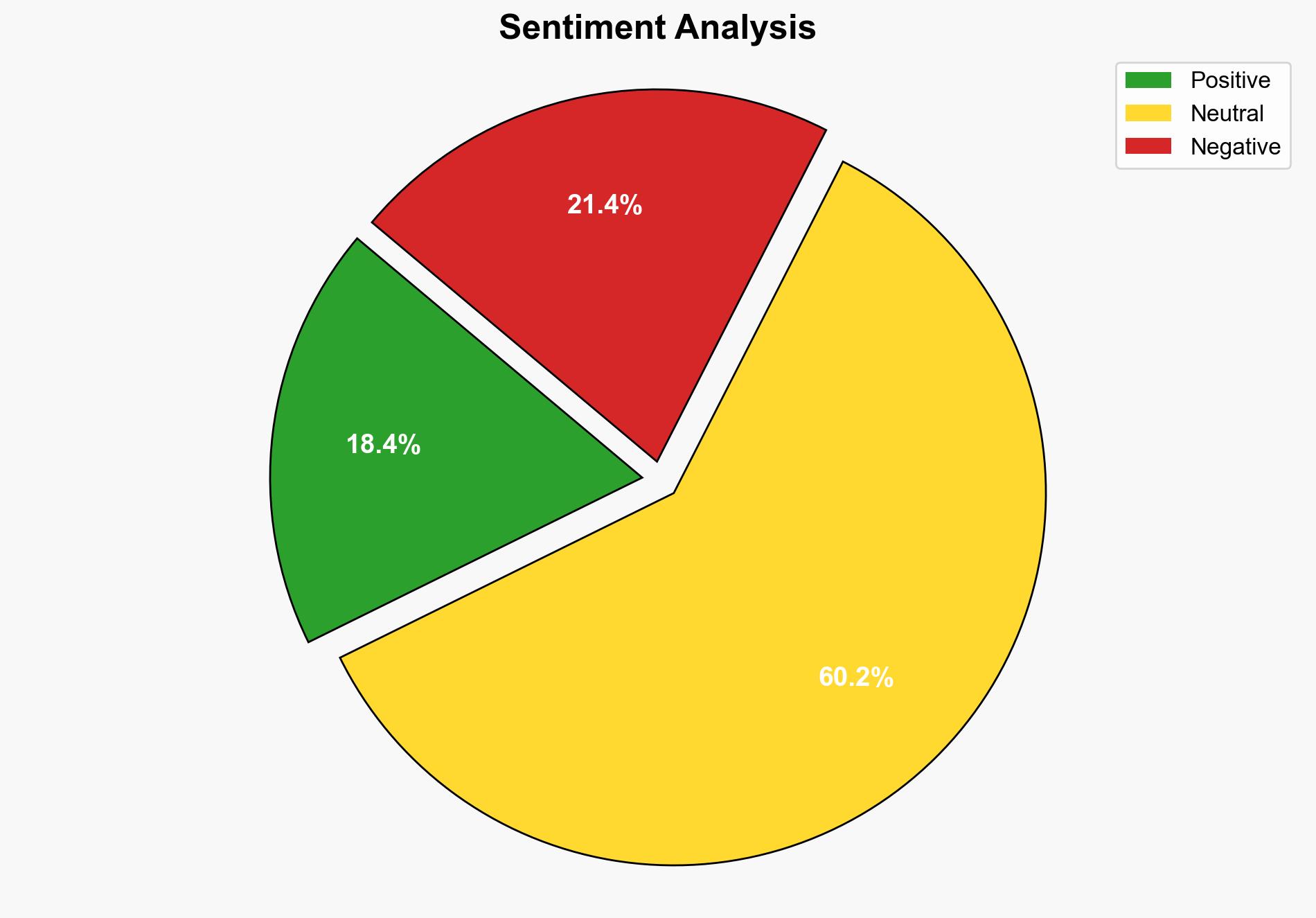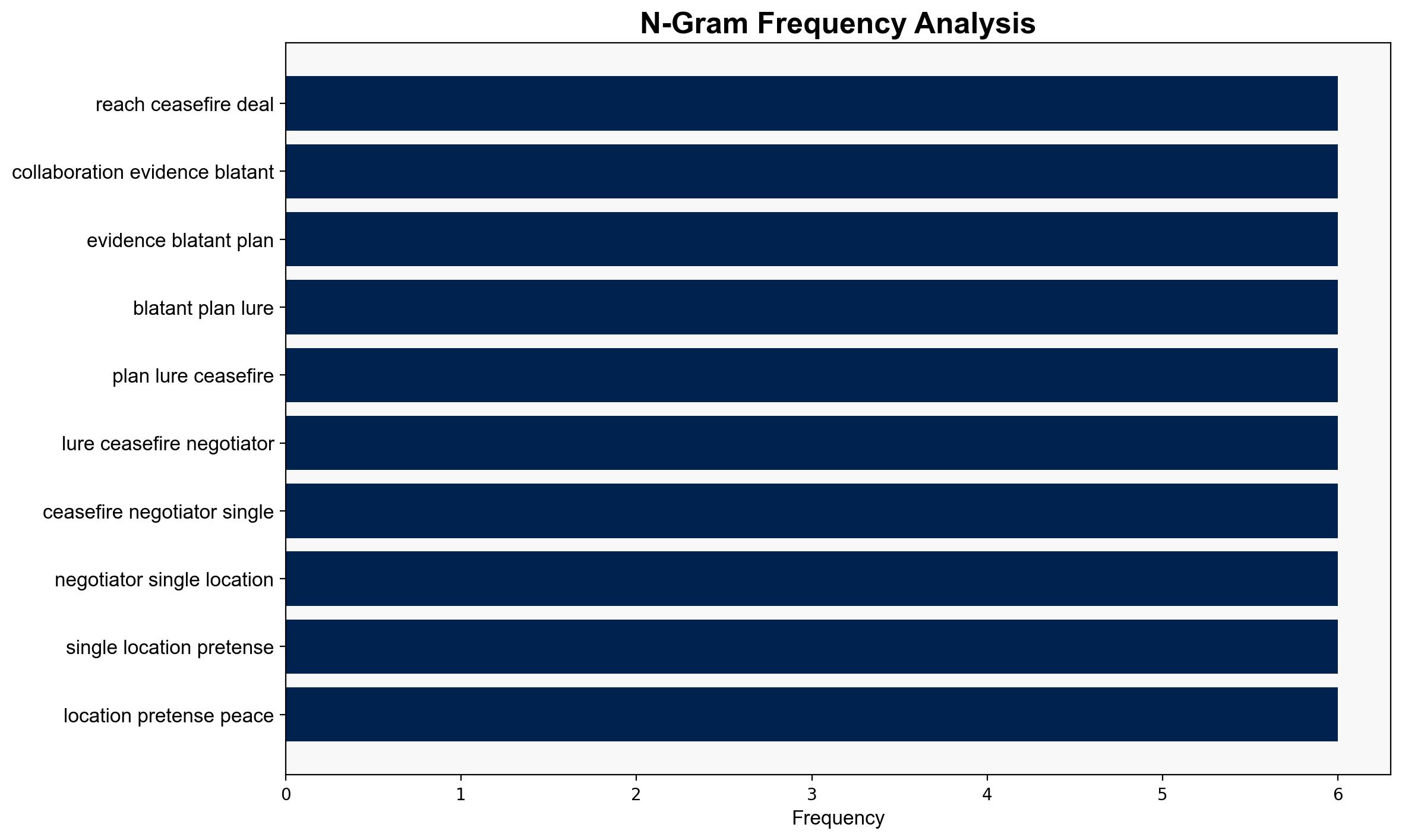Global Condemnation for Israeli Attack on Hamas Negotiators as Qatar Suspends Ceasefire Mediation – Common Dreams
Published on: 2025-09-09
Intelligence Report: Global Condemnation for Israeli Attack on Hamas Negotiators as Qatar Suspends Ceasefire Mediation – Common Dreams
1. BLUF (Bottom Line Up Front)
The most supported hypothesis is that the Israeli attack on Hamas negotiators was a deliberate strategy to undermine ceasefire talks, with potential tacit approval from the U.S. administration. Confidence level: Moderate. Recommended action: Increase diplomatic engagement with regional allies to de-escalate tensions and reinforce international norms against targeting negotiators.
2. Competing Hypotheses
1. **Deliberate Undermining of Ceasefire Talks**: The attack was a calculated move by Israel, potentially with U.S. knowledge, to disrupt ceasefire negotiations and weaken Hamas’s negotiating position.
2. **Miscommunication or Intelligence Failure**: The attack resulted from a miscommunication or intelligence failure, with no intent to sabotage negotiations, and was not pre-approved by the U.S.
3. Key Assumptions and Red Flags
– **Assumptions**: The first hypothesis assumes a high level of coordination between Israeli and U.S. officials, while the second assumes operational errors or miscommunication.
– **Red Flags**: The ambiguous U.S. response and denial of prior knowledge by Qatar suggest potential deception or selective disclosure of information.
– **Inconsistent Data**: Conflicting reports on whether the U.S. administration was aware of the attack beforehand.
4. Implications and Strategic Risks
– **Geopolitical Risks**: Escalation of tensions in the Middle East, undermining U.S. influence and credibility in the region.
– **Diplomatic Fallout**: Strained relations with Qatar and other regional allies, potentially impacting future mediation efforts.
– **Security Concerns**: Increased risk of retaliatory actions by Hamas or other groups, potentially destabilizing the region further.
5. Recommendations and Outlook
- Engage in direct dialogue with Qatar and other affected parties to clarify intentions and rebuild trust.
- Implement confidence-building measures to prevent further escalation.
- Scenario Projections:
- **Best Case**: Successful diplomatic intervention leads to resumed ceasefire talks.
- **Worst Case**: Escalation into broader regional conflict with increased violence.
- **Most Likely**: Prolonged diplomatic stalemate with intermittent skirmishes.
6. Key Individuals and Entities
– Benjamin Netanyahu
– Donald Trump
– Matt Duss
– Karoline Leavitt
– Gregg Carlstrom
7. Thematic Tags
national security threats, geopolitical tensions, Middle East diplomacy, ceasefire negotiations





